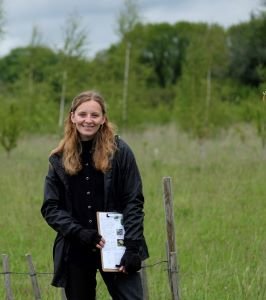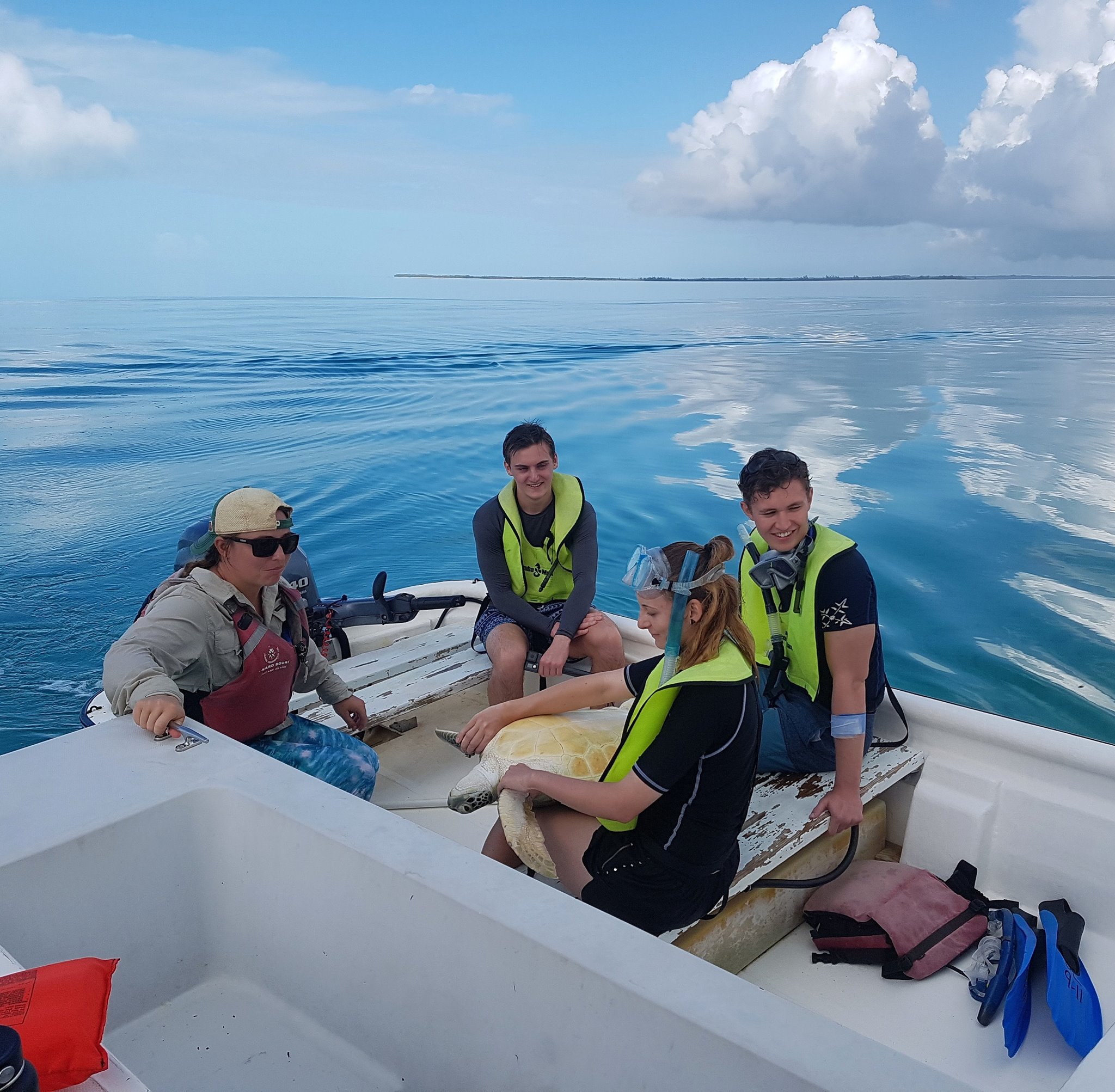Women in Science Day - Alex
Saturday February 11th is the International Day of Women & Girls in Science. To mark it, we decided to reach out to women involved with Andover Trees who have a scientific or STEM background, and ask them to write something about their experiences. We’ll post a piece on here each day for the rest of this week.
Alex Marshall, former ATU Intern: Early career ecologist
I’m Alex, I’m an early career ecologist from the Midlands. I am lucky enough to have a Zoology degree from the University of Exeter and conservation work experience from all over the world.
I have always been interested in nature and wildlife, that’s probably thanks to spending many hours out in the Peak District with my grandparents whilst I was growing up. I also loved watching wildlife documentaries and often thought that it would be absolutely amazing to be one of those scientists living in the jungle or scuba diving everyday, discovering new species. But I didn’t seriously begin to think about environmental science as a career choice until I went to one of those careers fairs at secondary school and discovered that there was a degree called Zoology - and that really interested me.
After university Andover Trees United offered me an internship, and that experience really has been invaluable, and a huge stepping stone into the industry. My role as intern and then paid ecologist was hugely varied! I was involved behind the scenes with PR & publicity, writing blog posts, maintaining the website, creating videos and infographics, giving presentations, speaking on the radio, writing press releases, writing scientific reports, writing funding bids, administration work, and event planning, but also I was involved in the field with wildlife surveying, youth group mentoring, leading school trips and community days, getting hands on with tree planting and pond digging, and even arranging an expedition to Costa Rica!
I’m now volunteering as a research assistant in New Zealand, where I am helping to monitor the breeding success of the Hihi bird (a.k.a stitchbird). Typically, the day involves walking through the bush (bush means forest) checking on the nest boxes, recording what stage each nest is at and carrying out any mite checks or candling the eggs to see if they are developed or undeveloped. I have also been helping to band and measure the chicks (under a New Zealand permit), and have been feeding them sugar water and cleaning their feeding stations.
The best way into the industry is perseverance - reach out to other nature-focused people and organisations who may be able to help you gain experience. Attend conferences or events where you might be able to do some networking. Do not wait for opportunities to be advertised, ask people anyway, you will find that most people in this industry are very willing to help. Also, be open to all kinds of roles - you never know where one door may lead to.
There are loads of skills and experiences that are transferable into this industry (such as teamwork, communication, IT & social media, time management, independent work, attention to detail, etc), and also some skills that are specific and require training - such as species identification, data analysis, survey techniques and practical outdoors work like how to use scientific equipment and gardening tools! The good thing is, most of those specific skills can often be learnt on the job, or even at home. Most ecology-based jobs would also require you to have an undergrad degree in one of the environmental sciences (biology, geography, ecology, zoology, land management, climate science, and so on), however, it is the practical experience will put you in good stead for securing future jobs - it is never too early to just start volunteering somewhere.
I would say the main benefit that working in the environmental sector has had for me is for my mental health. I am hugely passionate about nature and if I wasn’t spending every day working for the natural world, I don’t know what I would do - I think the climate anxiety would get too overwhelming. Working for nature can be challenging but incredibly rewarding, it also shows you first hand that good work IS being done to save the planet, every single day!




